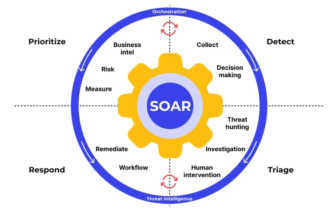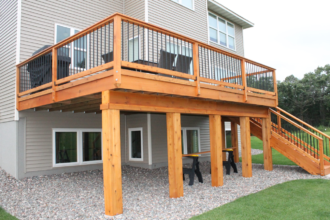Understanding loans, their different types, and their interest rates is key when you intend on securing additional finances to fund your venture. Each type of loan comes with its own set of pros and cons which have to be carefully evaluated in the context of your objective and needs.
- The Basics of Hard Money Loans
- Hard Money Loans Are Expensive
- Advantages of hard money loans
- Disadvantages of hard money loans
- Advantages and disadvantages of traditional loans
- Advantages
- 1. Lower Interest Rates
- 2. Longer Repayment Periods
- 3. Stability and Predictability
- 4. Higher LTV Ratios
- Disadvantages
- Conclusion
In this blog we will understand how hard money loans stack up against traditional options, how they are different, and why hard money lenders charge such higher interest rates in comparison to traditional loans.
The Basics of Hard Money Loans
Provided by private individuals or companies, commonly referred to as hard money lenders, hard money loans are short-term financial loans that have been secured against some form of real estate.
Primarily hard money loans are used to finance property investments, generate quick financing, or in situations where traditional loans may not be a viable option. Unlike traditional loans which banks and credit unions offer, hard money loans are more expensive, have higher interest rates, among a host of other things.
Hard Money Loans Are Expensive
Hard money lenders charge higher interest rates in comparison to traditional loans offered by banks or credit unions. This is because these higher interest rates reflect the greater risk, flexibility, and speed of dispersal associated with hard money loans. Here’s how –
Risk factor
From high credit scores to proof of stable income and detailed financial records, traditional lenders like banks and credit unions have strict loan eligibility requirements. Whereas on the other hand hard money lenders are more willing to take on borrowers who have poor credit rating or limited to no documentation. This added risk is managed by charging higher than traditional loan interest rates.
Convenience and speed
If you have ever applied for a traditional loan like a mortgage or even a SBA 7(a), you know it can take anywhere from weeks to even a couple of months for it to get processed, approved, and disbursed. While on the flipside, hard money lenders close deals in as little as a few days. This speed of disbursal is reflected in their higher interest rates.
Short-term nature
Hard money loans have a typical duration of 6-36 months, making them ideal for short-term rather than long-term commitments. But this short duration comes at a cost – hard money lenders charge a higher interest rate.
Asset-based lending
Different from traditional loans, which depend on your financial history and credit rating, hard money loans are secured against the property’s value. That means if you, for any reason, default on the lender, who has the power to sell said property and recover their money. It is also important to note that this asset-based approach does not fully mitigate the risk of the lender, hence the higher interest rate to compensate for it.
Advantages of hard money loans
Despite interest being on the higher than usual side, hard money loans do have quite a few advantages.
Quick access to funds
In situations where time is of the essence – like buying a property – hard money lenders become favorites. A simple ‘hard money lenders near me’ google search will connect you to top local providers who can act quickly.
Flexible eligibility criteria
Hard money lenders care less about your credit score and more about the value of the property you are offering as collateral.
Tailored for investors
If flipping houses is your thing or you need quick capital for a commercial project, hard money loans are made for you. There are many commercial hard money lenders who have carved a niche in catering only to property developers and real estate investors.
Short-term commitment
Its short loan durations ensure you are not tied to it for years (like in traditional loans), making them ideal for short-term projects and investments.
Disadvantages of hard money loans
With benefits come drawbacks. And there are quite a few of them associated with hard money loans.
High interest rates
The biggest drawback of hard money loans is its steep 8-15% interest rates. This has the potential to considerably eat into your profits if you are not careful.
Risk of foreclosure
Since hard money loans are asset-linked, defaulting on payment increases the risk of foreclosure thereby potentially losing the property you put up as collateral.
Short repayment period
Though the short-term nature is a benefit, it can very easily turn into a challenge. A big one at that if your project takes longer than anticipated to complete, then repayment can become an issue.
Limited loan-to-value (LTV) ratio
Usually, hard money lenders offer to cover only 60-70% of the property’s value. That means you have to cover the rest with your own money.
Advantages and disadvantages of traditional loans
Below are the advantages and disadvantages of traditional loans:
Advantages
For borrowers, traditional loans are a better option.
1. Lower Interest Rates
With rates often floating between 3–7% based on your credit score, traditional loans are more affordable over time.
2. Longer Repayment Periods
Longer repayment periods ensure making monthly payments is more manageable.
3. Stability and Predictability
Fixed-rate mortgages, for example, offer consistent payments. Therefore, making budgeting easier for the borrower.
4. Higher LTV Ratios
Unlike hard money lenders, banks are likely to finance a major percentage of your property’s value. Effectively reducing your upfront costs.
Disadvantages
However, traditional loans aren’t perfect.
1. Time-Consuming Process
Longer approval processes that can last from weeks to even months make traditional loans unsuitable for urgent needs.
2. Strict Qualification Criteria
A low credit score or irregular income often make approvals difficult.
3. Less Flexibility
Traditional lenders only speak numbers. This makes them less likely to make exceptions for unique situations.
Conclusion
Deciding between a hard money loan and a traditional loan depends on your specific situation and need.
If you’re a real estate investor who needs quick funding, a hard money loan may be the way to go. Look for hard money lenders near me or commercial hard money lenders for tailored options.
If you’re buying a home to live in and are willing to wait for approval, a traditional mortgage will save you money in the long run.
Article – 157
Site – thenewsgod.com
No of words: 1030















